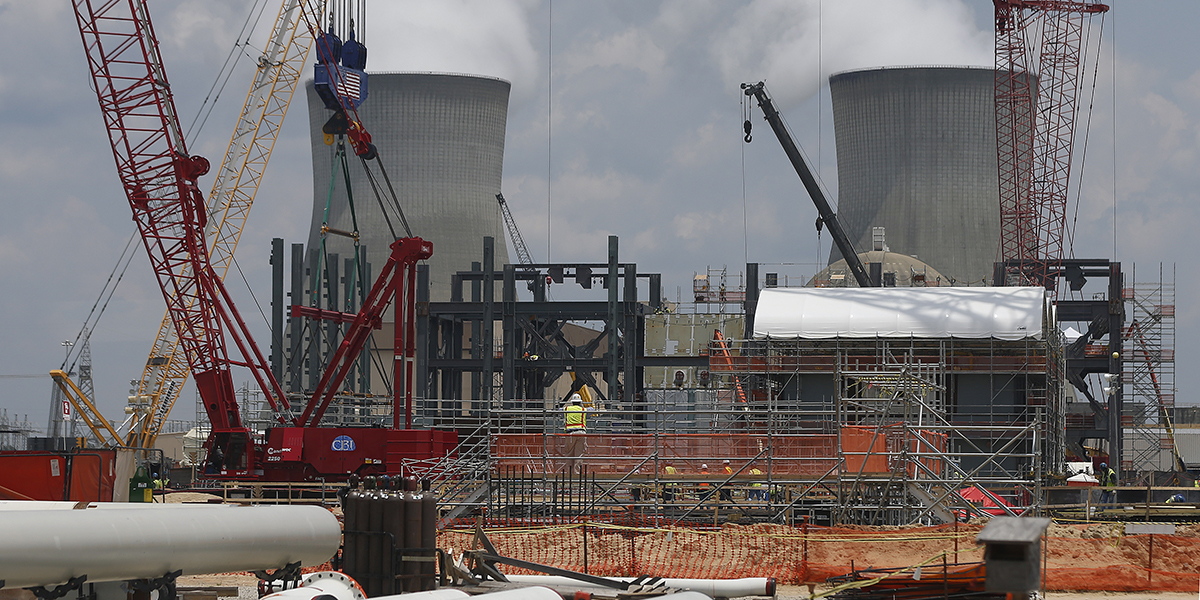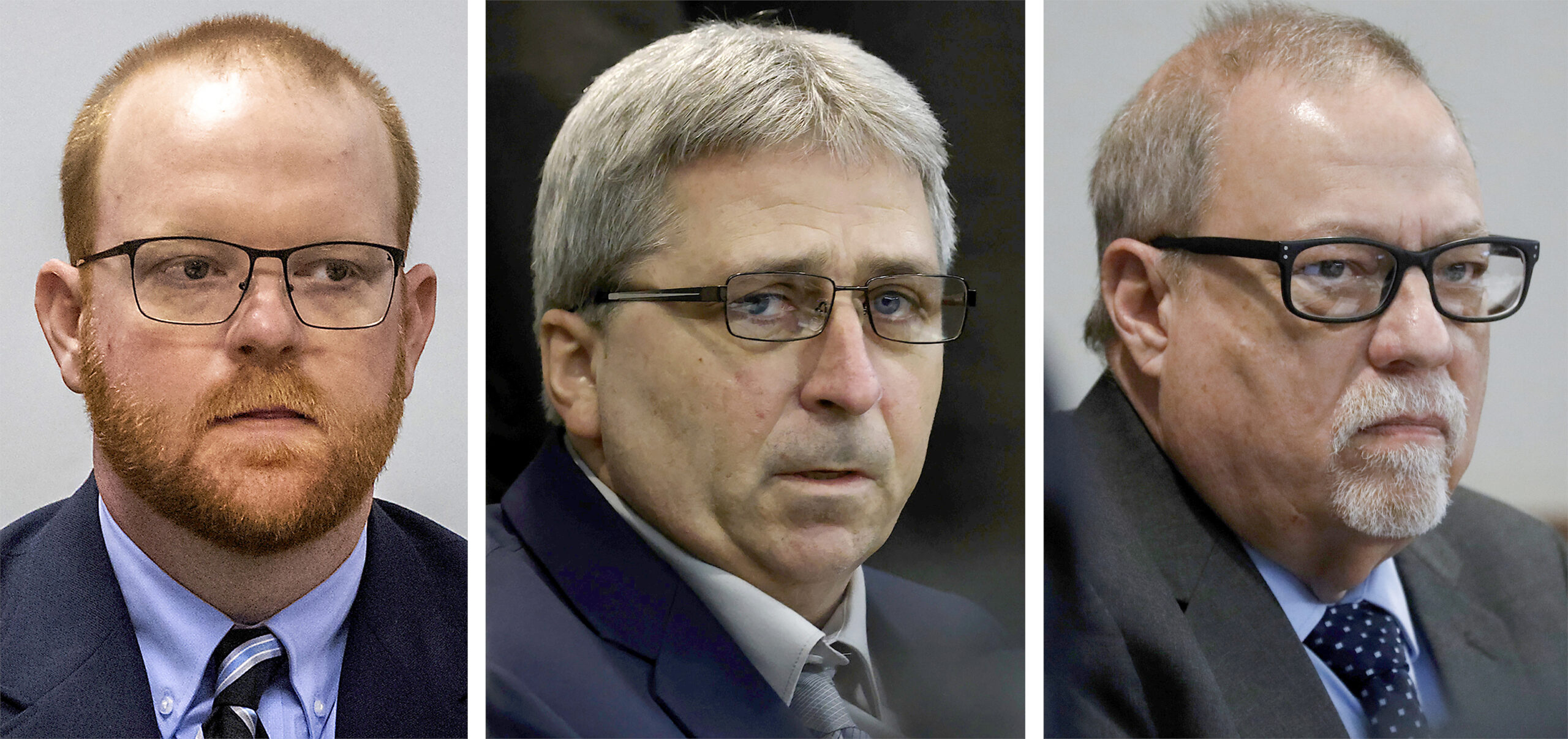Ga. PSC Delays Nuclear Vote, Asks Attorney General To Step In

File- In this June 13, 2014 file photo, construction continues on a new reactor at Plant Vogtle Nuclear Power Plant in Waynesboro, Ga. Regulators say there’s a “high probability” a nuclear plant under construction in Georgia will be delayed even longer than the three years already announced by its owners, according to an analysis obtained … Continued
John Bazemore / Associated Press
A state regulator wants Georgia Power to stop charging its customers for a nuclear power expansion project. But the idea is on hold for now.
Georgia Power is analyzing the future of its two new nuclear power units at Plant Vogtle, since the lead contractor declared bankruptcy earlier this year.
The project is over budget and behind schedule. As a result, state Public Service Commissioner Bubba McDonald said he’d like to see Georgia Power volunteer to stop billing rate payers for Vogtle costs.
“By law I guess you could say it’s owed to them, but they don’t have to collect it,” he said at a meeting Tuesday morning.
When McDonald raised the idea last week, an attorney for Georgia Power said that the utility would not volunteer to remove the charge, which appears on electric bills as the “Nuclear Construction Cost Recovery.” The lawyer also said his understanding of a state law passed in 2009 is that Georgia Power is required to collect the charge.
“Georgia Power’s recovery of financing costs during construction is required by state law,” Georgia Power spokesman Jacob Hawkins said. “This structure was put in place because it saves customers hundreds of millions of dollars by reducing financing and borrowing costs, while also phasing the plant into rates over time helping to avoid ‘rate shock’ at the end of the project.”
The Public Service Commission is asking the state attorney general’s office for an opinion on if it would be legal for Georgia Power to remove the charge.
Even if the motion did pass, and Georgia Power did volunteer to go along with it, Georgia Power customers would still pay the costs, but it would be after the new nuclear units are up and running.
9(MDAxODM0MDY4MDEyMTY4NDA3MzI3YjkzMw004))








